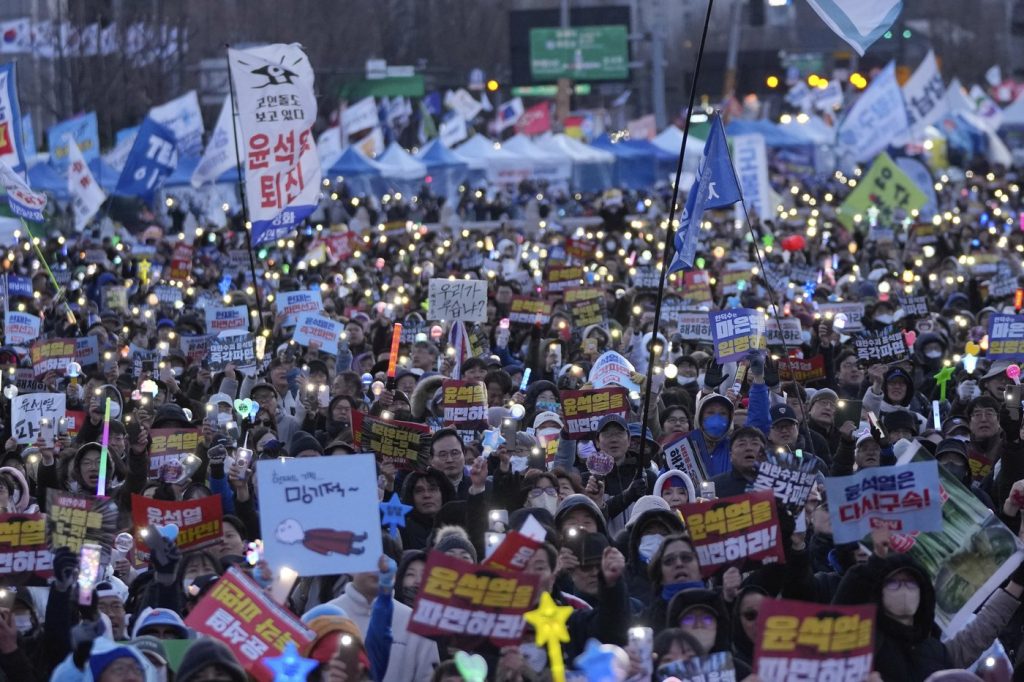SEOUL, South Korea (AP) - The Constitutional Court of South Korea is set to make a significant ruling this week regarding the impeachment of President Yoon Suk Yeol, following a controversial imposition of martial law in December. The key decision, expected on April 4, will determine whether the court will uphold Yoon’s impeachment by the National Assembly or restore his presidential powers.
This upcoming verdict is the culmination of months of political turmoil, polarization among the public, and massive protests in Seoul. Demonstrators have shown clear divisions, with some calling for Yoon’s ouster while others demand his reinstatement. The political instability tied to Yoon’s actions has disrupted state functions, strained international diplomacy, and aggravated an already precarious economy.
The timeline of events leading to this judicial review includes several pivotal moments:
On April 1, the Constitutional Court announced its decision-making date, set for April 4. Just a few days prior, on March 24, the court overturned the impeachment of Prime Minister Han Duck-soo, allowing him to resume his duties as the acting leader.
Earlier, on March 8, Yoon was released from imprisonment after the Seoul Central District Court canceled his arrest warrant, permitting him to remain free while facing trial. This marked a critical turn in the unfolding crisis.
The saga began to escalate on January 26, when the Seoul Central District Prosecutors’ Office indicted Yoon for attempting a rebellion. The charges alleged that Yoon orchestrated efforts to seize control of the legislature and suppress political adversaries.
Following an arrest warrant being issued by the Seoul Western District Court on January 19, a violent protest erupted as Yoon’s supporters clashed with law enforcement in a failed effort to protect him. Subsequent investigations led to Yoon’s detention on January 15, after police raided the presidential compound.
On December 14, the National Assembly successfully voted to impeach Yoon, leading to a suspension of his presidential duties. This historic motion was passed with a majority of 204 votes in favor, prompting Prime Minister Han Duck-soo to take over presidential responsibilities.
The lead-up to Yoon’s impeachment involved increasing tensions, such as his declaration of martial law on December 3, which he framed as necessary to address what he claimed were obstructive actions by opposition lawmakers. The declaration, deemed unconstitutional by many, resulted in fierce opposition and ultimately his removal from power.
Through December and early January, several key developments occurred, including the detention of former Defense Minister Kim Yong Hyun for alleged collusion over the martial law enforcement. Amidst this chaos, law enforcement faced obstructive resistance from Yoon’s security forces, complicating efforts to gather evidence against him.
In summary, the upcoming decision from the Constitutional Court will have far-reaching implications for South Korean governance and the balance of powers within its political framework. It remains to be seen whether the court will validate the legitimacy of the impeachment, thus sealing Yoon’s political fate, or restore his authority, further complicating an already tumultuous political landscape.










